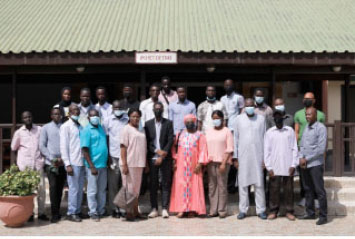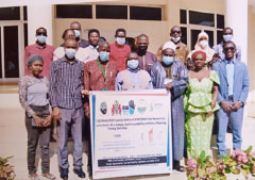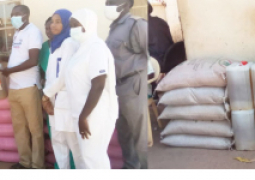
The training was meant to build the capacity of observers in The Gambia to take a better account of the collection of data relating to incidental catches of birds and sea turtles in industrial fisheries.
At the ceremony, Anna Mbenga Cham, director of Fisheries outlined the role of observers in the fisheries sector, saying they provide a permanent presence at the sea and monitor the activities of onboard fisheries vessels.
She revealed that international guidelines for the Management of Deep-sea Fisheries in the High Seas were adopted in 2008 by the United Nations Food and Agricultural Organisation technical consultation.
“In 2009, FAO developed guidelines to reduce sea turtles’ mortality in fishing operations. The International Guidelines on By-catch Management and Reduction of Discards were adopted by FAO Technical Conference in December 2010 which was developed.”
This voluntary instrument, he added, is aimed at promoting the ecosystem approach to fisheries by addressing by-catch and proposes a suite of measures that States should take, including planning, governance, data collection, research and operational measures.
Cham recalled that the FAO Committee on Fisheries in June 2014 endorsed the voluntary guidelines for flag state performance, which he added, aims to prevent, deter and as well eliminate Illegal, Unreported and Unregulated fishing through the effective implementation of flag state responsibilities.
“The implementation plan for the training was led by BirdLife International with the financial backing from MAVA Foundation which is a private foundation under Swiss law and regulated by its statutes and the Swiss Code.”
Omar Ba from BirdLife International said since the first training they had with the Gambia Fisheries Observers, they are pleased to offer training on data collection of sea birds and sea turtles.
According to him, the background of the project is also designed to establish an operational framework for minimizing the by-catch of seabirds and sea turtles in West Africa industrial fisheries and to implement it across the region.
“The project focuses on five key strategies; research and scientific capacity, observer programmes, advocacy for legislation and mitigations, awareness and public outreach and sustainability and partnership.”





